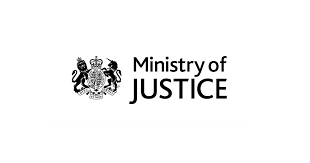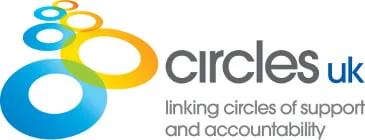The Life of a Circles Coordinator

Have you ever wondered ‘what exactly does a Circles coordinator do?’
Being a Circles coordinator is a multi-layered role that requires a specialist approach and a lot of experience in criminal justice. It is a careful balancing act between choosing the referrals that would benefit the most from our volunteers’ time and skills, organising volunteers and meetings and feeding back to the professionals who are also involved with our core members.
Some coordinators have several circles running at once throughout the year, which is several times these considerations as well as being someone each volunteer can reach out to throughout their circle. It’s a demanding job but our coordinators are dedicated to the role and the results they see year on year of helping to keep our communities safer and integrating people who have sexually harmed safely back into our communities makes all the work worth it.
We spoke to one of our newer coordinators, John Wiseman, to ask him what led him to Circles and what he does as a CSW coordinator:
“I started work life as a Probation Officer a little over 40 years ago and worked for the probation service in a myriad of different settings and even a spell of 5 years working for Community Corrections in New Zealand. I worked with offenders from the age of 14 to 90+ and dealt with all types of offenders, including those convicted of sexual offences.
Having taken early retirement from the Probation Service in 2019, and following a period of rest, recuperation and reflection, I came to work for Circles South West.
Working for Circles South West took me back to my roots as a young probation officer, seeking to help some of the most vulnerable members of society. It reflected the values of my life’s work spent trying to reduce reoffending, to protect the public and to make our communities safer – thereby preventing further victims, which is exactly what Circles SW strives to do.
Thinking about trying to describe what a typical day looks like as a Circles South West coordinator I have come to realise just how difficult, if not impossible, it is to do; the reality is that no 2 days are the same.
Of course, on the face of it, there may be lots of similarities – dealing with e mails, preparing for review meetings, making phone calls to volunteers, colleagues, police officers and probation officers, completing pre and post training interviews and holding 1:1 supervision meetings with volunteers, meeting with prospective core members to undertake assessments for a Circle and attending Circle meetings. But, the reality is that no two days are the same because no two people are the same. No two situations are ever exactly the same either. So that every encounter, every conversation is new and unique. And that, ultimately, is what makes this role so interesting, so challenging and so varied.
But what are the core parts of the Circles Coordinator role?
I think this can be broadly categorised as follows:
- Working with those convicted of sexual offending – our core members;
- Working with the volunteers;
- Working as a member of the CSW team.
- Working with key agencies such as the police and probation.
Working with those convicted of sexual offending.
If the overarching aim of Circles South West is ‘No More Victims’, the key to achieving this is the work we do with the men, women and young people who have been convicted of sexual offending or have demonstrated a level of harmful sexual behaviour (HSB). All of which we do in close collaboration with other services who are ultimately responsible for their supervision, oversight and management in the community. My own work is primarily with adults convicted of sexual offending and what follows relates to this work albeit there are some similarities in our work with young people.
Our involvement begins when we receive an enquiry or a referral from Probation or the Police (approximately 95%/5% from each) asking us to assess an individual for their suitability to engage in a Circle of Support and Accountability. The first test of this is their eligibility – do they meet the criteria for consideration for a Circle? This is generally determined by the type of offence and the risk of harm and/or reoffending that the individual presents. We generally work with those whose risk of harm or reoffending is assessed as medium to high or very high. The type and nature of the offending can range from non-contact offences (largely internet based) to contact offences including rape and sexually motivated murders where the victims may be young children or adults. This part of the assessment is largely based on the information provided by the Probation Service or Police in various forms and can be completed for the most part without meeting the potential Core Member. More challenging, however, is the assessment of the level of motivation and commitment of the individual concerned, and this can only be determined by way of an in depth interview and discussion with that person.
If assessed as both eligible and suitable for a Circle, and subject to the availability of a Circle, the referring Probation Officer or Police Officer will be informed and the process of organising the Circle can then begin in earnest.
Working with the Volunteers:
My work with the volunteers begins when an application is referred to me by our Volunteer Coordinator. I will be asked to make contact and to undertake a pre-training interview. This is essentially a conversation to ascertain what the individual knows about Circles already and why they want to become a volunteer – their motivation and rationale for doing so. This can vary considerably from those who are looking to pursue a career to those who simply want to give something back to the community. It is also an opportunity for the potential volunteer to ask more about CSW and the level of commitment required, and to help them make an informed decision about whether or not to proceed with the application. Assuming they do then the next stage is to complete the Core Training, which is typically held over two days, and which, as a Coordinator, I am routinely involved in delivering.
My role after this is to match volunteers to Circles at the earliest opportunity. This involves matching volunteers to the prospective Core Member but also to other volunteers to ensure an appropriate mix of individuals in a Circle in terms of gender, experience, and a diversity of skills and backgrounds.
Thereafter I am responsible for supporting the volunteers throughout the life of a Circle. This not only involves attending the Circle meetings at regular intervals to conduct reviews and to discuss progress with the group as a whole, but also by providing ongoing and regular individual supervision to all the volunteers involved in a Circle to ensure that they are ok and that there are no issues or concerns, either in relation to the Core Member or in terms of the group dynamics.
Working as a member of the CSW team.
The CSW team is, to coin a phrase, ‘small but perfectly formed’ comprising the Chief Executive, the Operations Manager, the Coordinators, the Volunteer Coordinator and the Administrative Support Assistant.
All of us bring a range of skills and experience to the team and all make a unique and critical contribution to the work of the organisation. Being such a small team brings its’ challenges and it is important that we work closely together to ensure a consistency of approach whilst also seeking to draw on the different skills, knowledge and experience that every member of the team has to offer.
For my own part, having had only relatively limited prior experience of working face to face with those convicted of sexual offending, most of which was gained over 30 years ago, I was initially heavily dependent upon my colleague, Jamie Stephenson, to show me the ropes and to guide me through the inner workings of CSW. I was also very pleased to be able to attend the Core Training for volunteers, which served to give me a very good insight into the work of Circles. I am very grateful for the support of other colleagues who have been free with their advice and their guidance; and it is comforting to know that, whatever issues may arise from time to time, there is someone in the team with prior knowledge or experience of the issue who can offer their guidance. This is especially important as we all work from home in our various corners of the SW and was particularly true during the earlier stages of the current pandemic when we were all working in isolation.
Working with key agencies e.g. the police and probation.
If working as a member of the CSW team is important, our work in partnership with key agencies such as the police and probation is also critical and a key element of the role of the coordinator, and this is something that I have also enjoyed immensely. This is especially true in the context of that aspect of the work of a Circle that is focused on accountability.
As stated above, most of the referrals to standard adult Circles come from the Probation Service, with approximately 5% coming from the police. In both cases the relationship we have with the Police or Probation Officers involved with a particular Core Member can be critical to the success or failure of the Circle, and it is notable that where that partnership is less well developed it can be more difficult to deliver on the accountability element of the Circle. Hence the need to nurture these relationships and this has been both challenging and rewarding at different times. But never one to shirk a challenge this is something that I have enjoyed and has paid dividends in most cases.
To say that the work of a Circles Coordinator is varied then would be a massive understatement, but this is also one of the most exciting and rewarding aspects of the role.

















